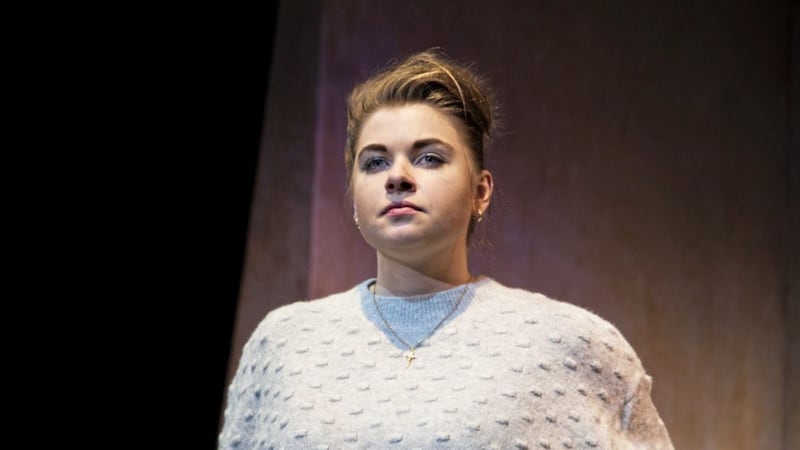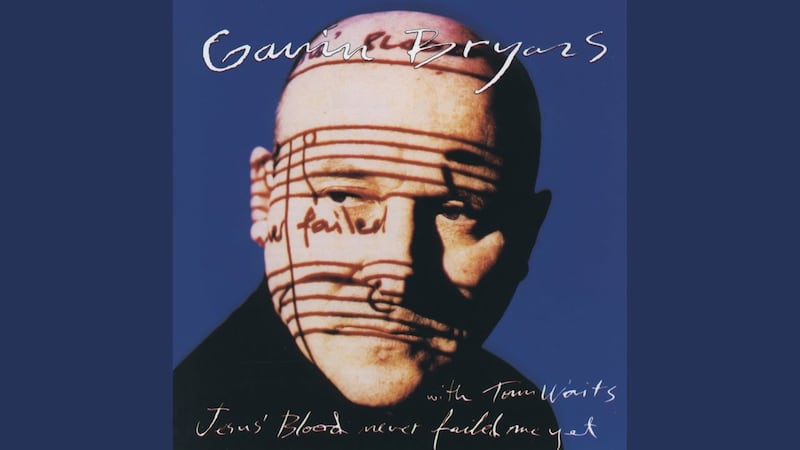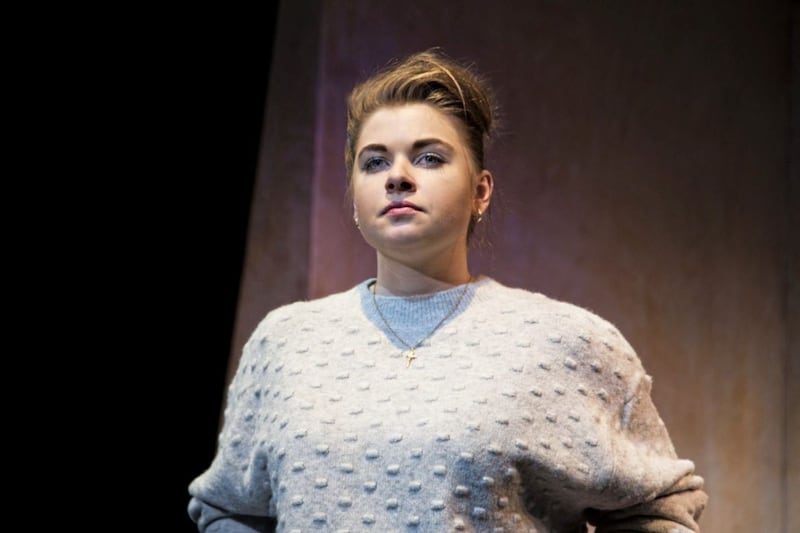THE Hunger Strike and the deaths of 10 young IRA men in 1981 is one of those combustible periods in our recent historical past where many still recall the pervading tension all too clearly.
While publicly it involved a deadly stalemate between the IRA's demands and the then Prime Minister Margaret Thatcher's refusal to reinstate 'special category status' to republican prisoners, at its heart it was a human dilemma between the men, their families, and their faith.
Norah, a play by Gerard Humphreys being staged at the Lyric, Belfast, this weekend, takes a look at a fictional family as Norah McNeigh’s brother Kyran has made the decision to go on hunger strike in 1981. When he loses consciousness, Norah is faced with the difficult decision to either respect his political choice or try to save his life.
Through confrontations with the British Foreign Office, the Catholic Church, the RUC, the IRA, and her own family, Norah’s convictions and loyalties are put to the test.
In the play, directed by Anthony Fox and produced by Dublin-based company The New Theatre, the titular role is played by Juliette Crosbie, who is well known to Dublin audiences. Belfast actor Brendan Quinn plays Prionsias Maguire, an IRA volunteer who was active with Kyran, while Hannah Carnegie of the Tomelty dynasty, – her mother is actress Roma Tomelty and her grandfather was actor and playwright Joseph Tomelty – plays Jackie O'Hara, the mother of Kyran's baby.
Humphreys, a BBC Stewart Parker Award-winning writer, says he was "haunted" by the Hunger Strike and felt compelled to write about it ever since.
"At the time I was peacekeeping in the Middle East, in the Lebanon and Israel, and all we ever wanted to talk about was the Hunger Strike," recalls Humphreys, a former soldier with the Irish army who was born in Dublin.
"While it happened in the north, it was also a traumatic time for people in the south as it changed the country forever because the Irish government was undermined by Maggie Thatcher and perceived to be ineffective. There was a real discontent between the people of Ireland and the government, which I believe the state never recovered from."
The writer was struck by the similarities of some of the situations that he saw at home and what he saw during his international peacekeeping duties.
"I was part of an international group that used to go to all the major violations of international law. Around me I could see there were echoes of what was going on in the north of Ireland but on a bigger scale," says Humphreys, who writes in English and Irish.
"There was real anger and discontent but it was more the impotence of our government [in ther Republic] as we knew that the policies in the north were wrong.
"From a peacekeeping point of view, you never allow one section of the community to mistreat another. We had to do everything to protect the embassy [the British Embassy in Dublin was petrol-bombed in 1972 and in 1976, British Ambassador Christopher Ewart-Biggs and young female civil servant were killed in a an IRA landmine attack], yet the British government wouldn’t take the concerns of the Irish government on board."
He chose to have a woman as the protagonist as he saw at first hand when Irish soldiers died abroad, that women, usually the elder sister of a family, would step up to handle the funeral and all the formalities for the bereaved family.
Humphreys says he was interested in the human dilemma that impacted on all those involved in traumatic situations like the Hunger Strike.
"The Hunger Strike haunted me for years, actually. When I was doing a course on Greek tragedy I think in my head that became the bedrock for the horrific events that went on at that time," he says.
"Sometimes in the Middle East, some groups would talk about going on hunger strike. I was absolutely stunned as they had no understanding of the horrific nature of a hunger strike. I would try and explain to them the devastating consequences of a hunger strike on the families and the communities of those involved as they would have this simplistic viewpoint of it.”
He is hoping that the play stimulates fresh debate about this tumultuous time and adds: “The Hunger Strike was this huge event in the 20th century and yet, with Section 31 [the public banning of transmitting Sinn Fein interviews in the Republic] and censorship and self-censorship, we’ve had no debate about something which had such consequences and which cries out to be explored.”
:: Norah (The New Theatre Company) by Gerard Humphreys will be staged at The Lyric, Belfast, April 27-28. For booking visit lyrictheatre.co.uk








